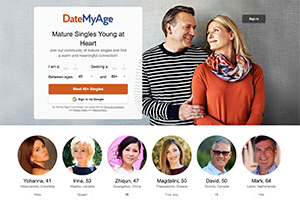The Evolution and Impact of Online Dating Sites
페이지 정보

본문
Online dating has transformed the way people meet and form romantic relationships in the 21st century. With the advent of the internet and mobile technology, dating has evolved from traditional methods of meeting in social settings to a more digital approach, allowing individuals to connect with potential partners from the comfort of their homes. This report explores the history, mechanics, advantages, disadvantages, and societal impact of online dating sites.
History of Online Dating
The concept of online dating can be traced back to the late 1960s when computer dating services began to emerge. These early services used algorithms to match individuals based on personal preferences and interests. However, it wasn't until the late 1990s and early 2000s, with the rise of the internet, datemyage app review that online dating gained significant traction. Websites like Match.com (launched in 1995) and eHarmony (launched in 2000) pioneered the industry, offering users the ability to create profiles and connect with others based on compatibility.
Mechanics of Online Dating Sites
Online dating sites typically operate on a freemium model, where users can access basic features for free but must pay for premium services. Users create profiles that include personal information, interests, and preferences, often accompanied by photographs. The matching process can vary widely between platforms; some sites use complex algorithms to suggest potential matches based on compatibility, while others allow users to browse profiles freely.
Communication is a key component of online dating. Most platforms offer messaging features that enable users to interact before meeting in person. Some platforms have also integrated video chat capabilities, especially in response to the COVID-19 pandemic, which limited in-person interactions.
Advantages of Online Dating
One of the most significant advantages of online dating is the sheer number of potential partners available. Users can connect with individuals outside their immediate social circles, expanding their dating pool significantly. This is particularly beneficial for individuals in smaller communities or those with specific preferences that may not be met locally.
Online dating also allows for a level of convenience and flexibility. Users can browse profiles and communicate at their own pace, which can reduce the pressure often associated with traditional dating. Additionally, many platforms cater to specific demographics or interests, such as age, religion, or lifestyle, allowing users to find like-minded individuals.
Disadvantages of Online Dating
Despite its advantages, online dating is not without its challenges. One of the primary concerns is the prevalence of misrepresentation. Users may present themselves in a more favorable light, using outdated or heavily edited photos, or exaggerating their interests and achievements. This can lead to disappointment when meeting in person.
Safety is another significant concern. Online dating involves sharing personal information, which can expose users to risks such as catfishing, scams, or harassment. While many dating platforms have implemented safety features, such as profile verification and reporting mechanisms, users must remain vigilant.
Societal Impact of Online Dating
The rise of online dating has had a profound impact on societal norms surrounding relationships. It has contributed to changing attitudes toward dating and marriage, making it more acceptable for individuals to seek partners online. This shift has also influenced how people approach relationships, with many now prioritizing compatibility and shared interests over traditional factors such as social status or family background.
Moreover, online dating has fostered increased acceptance of diverse relationships, including same-sex and interracial couples. Many platforms cater specifically to these communities, providing safe spaces for individuals to connect and form relationships.
The Future of Online Dating
As technology continues to evolve, so too will online dating. The integration of artificial intelligence and machine learning is likely to enhance matching algorithms, making them more effective at predicting compatibility. Virtual reality (VR) and augmented reality (AR) may also play a role in the future of online dating, offering immersive experiences that could change how individuals interact and connect.
Additionally, the ongoing emphasis on safety and user verification will likely lead to improved measures that protect users from potential risks. As online dating becomes increasingly mainstream, the industry will need to address issues such as privacy and data security to maintain user trust.
Conclusion
Online dating has revolutionized the way individuals meet and form romantic relationships. With its rich history and evolving landscape, it offers both opportunities and challenges. While the convenience and accessibility of online dating are appealing, users must navigate the potential pitfalls carefully. As society continues to embrace online dating, it will be essential to prioritize safety, authenticity, and meaningful connections, ensuring that this modern approach to dating remains a positive experience for all involved.

- 이전글적현동ㅣ러시아출장☘️☎️010^8258+5008☘️팔용동출장마사지,팔용동출장안마,마산출장마사지,창원출장마사지 25.11.15
- 다음글두대동ㅣ러시아출장☘️☎️010^8258+5008☘️오동동출장마사지,오동동출장안마,마산출장마사지,창원출장마사지 25.11.15
댓글목록
등록된 댓글이 없습니다.



